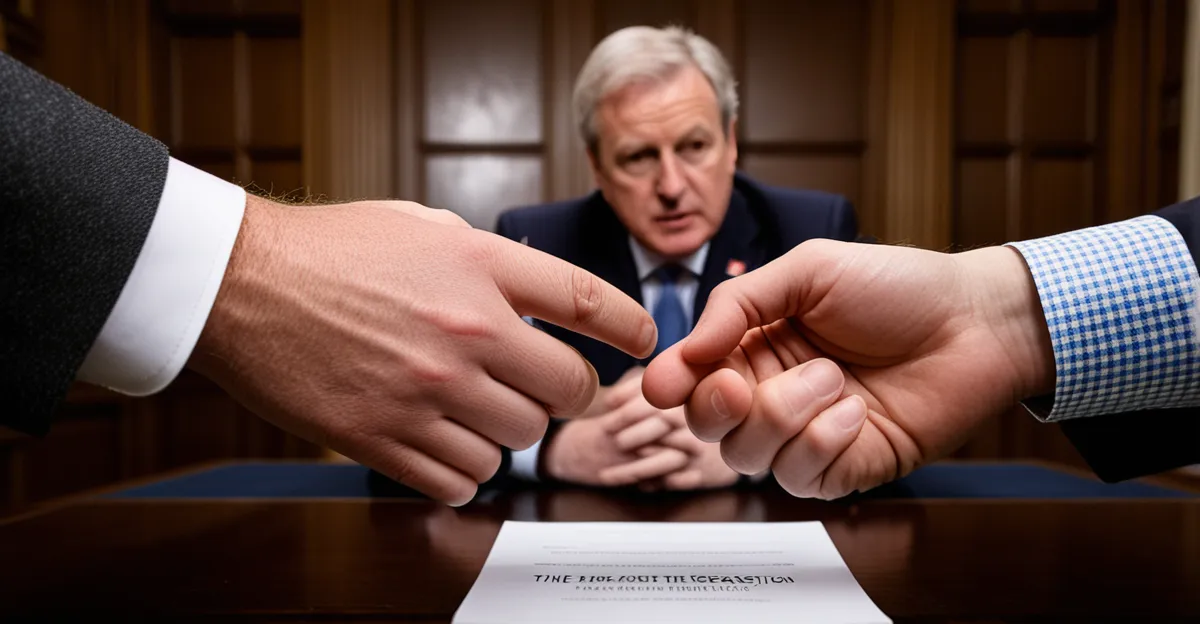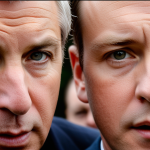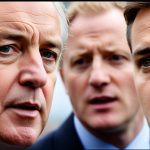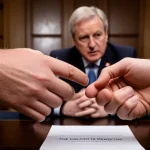Overview of Current Themes in UK Political Discourse
Political discourse in the UK increasingly reflects deep polarisation across major parties and the general public. This divide is particularly evident when discussing topics rooted in the Brexit legacy, which continues to influence national identity debates and policy formulation. Brexit’s impact is more than historical; it shapes ongoing conversations about sovereignty, immigration, and economic priorities.
Key issues like immigration, economic reform, and culture wars have taken center stage in political debates UK-wide. These themes highlight contrasting visions of the UK’s future, often reinforcing divisions. Parties and commentators use these issues to appeal to their base, further entrenching polarisation.
Also to see : What Are the Implications of Recent Political Shifts in the UK?
National political discussions also focus on how Brexit redefines the UK’s role globally while affecting domestic policies. Questions such as “How does Brexit remain a dividing factor?” can be answered precisely: it reshapes perceptions of control over laws and borders, making it a persistent reference point during legislative negotiations and election campaigns. Understanding these core themes clarifies why political debates UK continue to be charged with historical and emotional significance.
Impact of Media on Political Conversations
Media plays a critical role in shaping UK political debates and societal views. Social media influence has transformed the landscape, enabling rapid dissemination of partisan viewpoints. Platforms like Twitter and Facebook often create echo chambers, where users encounter information reinforcing their biases. This dynamic intensifies polarisation by amplifying divisive voices and limiting exposure to opposing perspectives. Consequently, political debates UK-wide become more fragmented and heated.
Topic to read : What Are the Most Controversial Decisions in Recent UK Politics?
Mainstream media in the UK also significantly affects political discourse. Editors and producers determine which issues gain prominence, subtly guiding public agendas. Coverage may highlight or downplay topics such as the Brexit legacy or immigration, influencing public perception and political priorities. For instance, news outlets focusing heavily on economic reform shape conversations around austerity or investment, while others emphasize cultural conflicts, reinforcing existing divisions.
Studies on UK discourse analysis reveal that media coverage patterns correlate with spikes in public engagement on political topics. People often react more strongly to stories framed with conflict or crisis, further fueling polarized discussion. Overall, understanding the interplay between social media influence and mainstream media UK helps explain how political news trends affect voter attitudes and intensify the political climate.
Major Political Parties and Policy Stances
In 2024, UK political parties present sharply contrasting policy stances, reflecting broader divides in voter priorities. The Conservative Party emphasizes economic recovery post-Brexit, prioritizing growth and deregulation. Their manifesto pledges focus on fiscal responsibility, immigration control, and law-and-order measures. This approach appeals to constituents concerned about stability and national sovereignty.
Labour policy, meanwhile, shifts toward expanded public services and social equity. Their campaign highlights increased investment in healthcare, education, and green energy. Labour’s messaging stresses addressing inequality and supporting working-class communities, aiming to mobilize traditional and new voters alike.
The Liberal Democrats UK continue to advocate for a pro-EU stance, centering their platform on civil liberties and climate change. Their policy commitments include reversing Brexit-related damages and promoting inclusive social policies.
Campaign strategies for all parties rely heavily on responsive messaging shaped by recent political debates UK. Conservatives and Labour have intensified focus on cultural issues and economic reform, tailoring promises to regional concerns. The diversity of policy stances emphasizes how 2024’s political landscape remains polarized, with each party vying to define the future direction of UK governance.
Rise of New Political Movements and Figures
The emerging UK movements are reshaping the political landscape by introducing fresh perspectives and challenging established party narratives. These grassroots activism efforts often focus on localized concerns like climate action, social justice, and democratic reform. Their appeal stems from addressing issues perceived as overlooked by traditional parties, giving voice to disenfranchised voters and energizing public engagement.
Public figures UK politics turn to include charismatic activists and commentators who leverage social media to amplify their messages. These political leaders UK often serve as catalysts for mobilizing new supporters, blending online influence with real-world organizing. Their presence highlights a shift toward more personalized, issue-driven politics rather than strictly party-aligned campaigns.
The rise of outsider movements in the UK is driven by widespread dissatisfaction with polarisation and established institutions. Voters increasingly seek alternatives that promise innovation, transparency, and responsiveness. This trend complicates the UK politics trends by diversifying political participation and pressuring major parties to adapt or risk losing relevance. Understanding this dynamic is crucial to forecast how grassroots activism and prominent public figures might affect policy debates and electoral outcomes in the future.











